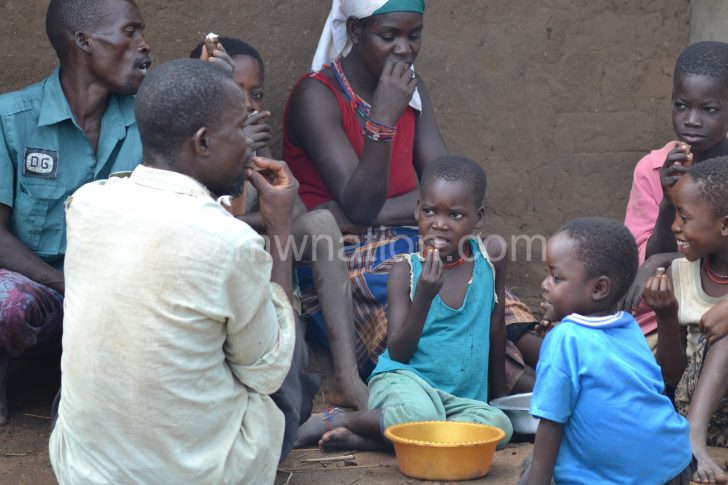Food security set to improve
Forty-three-year-old Joyce Malisita from Traditional Authority Makhwira in Chikwawa District felt relieved as she received a K150 000 social cash transfer last week.
“I was on the verge of collapsing due to hunger,” she said.

A visibly weak Malisita could not hide her excitement as she spoke to Nation on Sunday about what she intends to use the money for.
The single mother of five is among 185 888 beneficiaries of a K78 billion Social Cash Transfer Programme that the World Bank is financing through the National Local Government Finance Committee and targeting 11 councils.
Malisita, who was affected by Cyclone Freddy in March 2023, says she intends to purchase a bag of maize and start selling fritters.
She hopes the business will help bring food to the table for her five children.
Before the devastating cyclone, Malisita used to search for piecework, locally known as ganyu as her husband left her in November 2022.
“I do not know where he went. So, that’s when I decided to start looking for piecework to support my family,” she says.
With the help, she believes her challenges will be eased.
Similarly, Maria Tembo from Traditional Authority Nchilamwera in Thyolo District expresses optimism that her hunger situation would improve following the social cash transfers.
Unlike Malisita, who is a single parent, Tembo has a husband and a three-year-old daughter. But her family has nevertheless struggled to feed itself.
“There have been days when we could go to bed after drinking tea because we have had no money to purchase maize,” she says.
But with the social cash transfers, she believes her family will now afford a bag of maize to take them through the lean season while investing part of the money into a small-scale business with her husband.
Such humanitarian assistance received by the two is anticipated to improve food security, especially in districts affected by Cyclone Freddy, according to a December 2023 Malawi Food Security Outlook report by the Famine Early Warning Systems Network (Fewsnet).
The report anticipates that such humanitarian assistance will likely improve the food security situation through March 2024.
According to the report, the situation has been necessitated by funding from the Malawi Government and other donor partners to cushion hunger-stricken households, starting from the lean season.
Reads part of the report: “The government and development partners have secured around 40 percent of the funding requirements for the 2023/24 Lean Season Response Programme, with assistance focusing on the districts severely affected by the tropical cyclone.
“Humanitarian assistance in the districts of Mwanza, Mulanje, Nkhotakota, Mangochi, Zomba City, Phalombe and Thyolo is provided in the form of cash or in-kind transfers or a combination of both, for a period ranging from two to six months.”
Fewsnet’s food security outlook report comes at a time the Malawi Government has embarked on a humanitarian programme to cushion Malawians in the lean season through provision of social cash transfers and provision of maize as well as other non-food items.
The social cash transfers, which have already started in districts of Chikwawa, Nsanje, Chikwawa and Mulanje and are mainly targeting Cyclone Freddy survivors, are ranging from K150 000 to K250 000 per person.
The social cash transfers are catering for three months and the expectations are that beneficiaries must purchase at least a 50 kilogramme bag of maize and possibly invest in livestock and small-scale businesses.
And according to Fewsnet’s report, the humanitarian assistance provided by both the government and donor partners will go a long way in cushioning Malawians amid an economic condition which continues to worsen, coupled with a very high inflation.
The report also observes that food prices remain very high, thereby restricting access for very poor households that mainly rely on market purchases in the lean season.
Against such situations, the humanitarian assistance being provided is playing an integral role in supporting such households.
According to the report, as of the end of November 2023, prices of maize were trending at a range of 30 to 80 percent above 2022 and 170 to 250 percent above a five-year average in markets monitored by Fewsnet.
The report states that while some month-on-month maize price stability was recorded between October and November 2023, the situation is a temporary relief driven by the start of the in-kind humanitarian assistance in the Southern Region as well as the release of more stock onto the market by farmers selling some of their maize to buy fertiliser and seeds.
Malawi Vulnerability Assessment Committee (Mvac) annual food security assessment results project that an estimated 4.4 million Malawians will likely face hunger in the 2023/24 consumption period, representing 22 percent of Malawi’s projected 19.6 million population.
This is a 15 percent increase compared to the previous consumption period when 3.9 million people faced hunger.
Minister of Agriculture Sam Kawale is on record as having told Nation on Sunday that government would implement numerous mechanisms to support Malawians facing such situations.
Maize, as part of the food component, accounts for about 53.7 percent of the Consumer Price Index, which is an aggregate basket of goods and services for computing inflation.






Hey there You have done a fantastic job I will certainly digg it and personally recommend to my friends Im confident theyll be benefited from this site